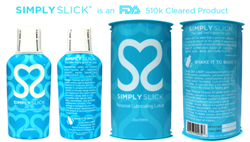The Move Towards Truly Natural Products Aims to Strengthen the Natural Personal Care Market, Sees Kline
Thursday, February 19th, 2015
PARSIPPANY, NJ (PRWEB UK) 29 January 2015
While products formulated with a high proportion of synthetic ingredients dominate the global natural personal care market, accounting for nearly 75% of the total market share in 2014, truly natural positioning is gaining importance with consumers, manufacturers, and retailers. Following this trend, marketers have increasingly been reformulating with a higher proportion of truly natural ingredients in their products, finds the imminent Natural Personal Care Global Series report by global consulting and research firm Kline & Company.
The popularity of natural-inspired products is higher in less mature markets, such as Brazil and some Asia-Pacific countries, where disposable income and consumer awareness regarding product ingredients are low and where distinguishing between natural-inspired and truly natural cosmetics is not as important when making a purchase.
In mature markets like the United States and Europe, a growing number of consumers are purchasing products containing predominantly natural ingredients. While products that are only natural-inspired continue to prevail in the United States and Europe in 2014, Kline’s ratings system, which analyzes brands’ naturalness on a scale of 1 to 10, with 10 being completely natural, uncovered shifts in the natural positioning in several U.S. and European brands, including Avalon Organics, JĀSÖN, Annemarie Borlind, and Melvita, all receiving higher ratings in 2014 when compared to prior years.
“These reformulations are the next natural step for companies aiming to establish strong natural concepts with high importance given to the trust between the brand and the consumers. Moving upward in the natural ratings is a great way for natural brands to gain acceptance from a larger consumer base in the mid- to long-term,” explains Agnieszka Saintemarie, Project Manager, Consumer Products at Kline & Company.
Consumers are willing to invest in these often pricey truly natural products but only if they deliver effective results. Therefore, marketers are increasingly focusing on product efficacy. To cater to consumers’ desire to be able to easily select the right product, some marketers are becoming more transparent in their communication about the quality level of ingredients, certification, and the company’s values.
Sales of the global natural personal care market increase by nearly 10% in 2014. All regions continue to surpass the overall beauty market’s growth during 2014. Brazil and Asia-Pacific remain the fastest growing regions during 2014, with both expanding at double-digit rates. However, growth in China is restricted due to formulation challenges, as well as animal-testing methods. Several Western brands, such as Weleda, Lavera, and Pangea, among others, have withdrawn from the Chinese market in protest.
Growing consumer awareness of synthetic chemicals in cosmetics and toiletries and the desire for truly natural products will continue to propel the global natural personal care industry. This segment’s growth is projected at a CAGR of slightly less than 10% through 2019.
To learn more about this thriving market, register for our free webinar happening on February 11, 2015.
Natural Personal Care Global Series report provides a global overview of the market for natural and organic cosmetics and toiletries, as well as deep insights on the markets in Europe and the United States. Focusing on key trends, developments, challenges, business opportunities, this comprehensive analysis features natural ingredient ratings using Kline’s proprietary rating scale.
About Kline & Company
Kline is a worldwide consulting and research firm dedicated to providing the kind of insight and knowledge that helps companies find a clear path to success. The firm has served the management consulting and market research needs of organizations in the agrochemicals, chemicals, materials, energy, life sciences, and consumer products industries for over 50 years. For more information, visit http://www.KlineGroup.com.
Kline Consumer Products focuses on cosmetics, personal care, professional beauty, and home care market research covering trends, scenario forecasts, and intelligent insights not found anywhere else.
For more information, contact:
Marcela Chifu
Marketing Communications
+49-176-689-197-12
Marcela.Chifu(at)klinegroup(dot)com


